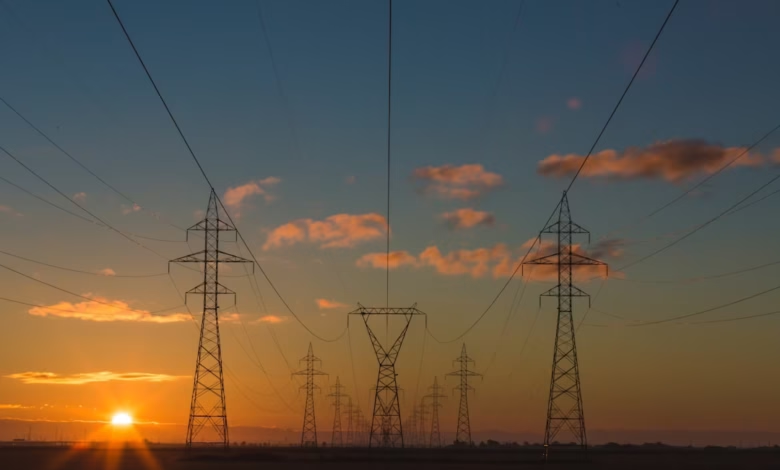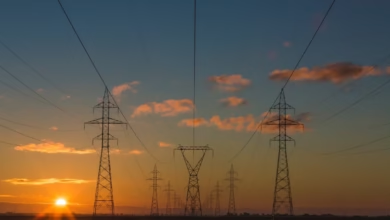Navigating the Future of Energy: The Role of Fossil Fuels, Renewable Solutions, and Innovations in the Energy Transition

Fossil fuels—comprising oil, coal, and natural gas—have long been the backbone of global energy markets, powering industries, transportation, and households alike. As we navigate the complexities of the 21st century, the role of fossil fuels is evolving amidst pressing challenges such as climate change, energy security, and the urgent need for energy efficiency. This article delves into the current state of fossil fuel production and consumption, examining how these traditional energy sources influence global energy trends and policies. We will explore the impact of fossil fuels on our climate and the ongoing shift towards renewable energy solutions, including solar power, wind energy, and bioenergy. Furthermore, we will highlight innovative approaches in energy production, from the development of smart grids to advancements in energy storage and carbon capture technologies. By understanding these dynamics, we can better appreciate the intricate balance between maintaining energy imports and exports while investing in a sustainable energy future that includes nuclear energy, thermal energy, and offshore energy. Join us as we unpack the critical intersections of fossil fuels, energy innovations, and the ongoing energy transition that shapes our planet's future.
- 1. The Role of Fossil Fuels in Global Energy Markets: Trends, Challenges, and the Energy Transition
- 2. Exploring the Impact of Fossil Fuels on Climate Change and the Shift Towards Renewable Energy Solutions
- 3. Innovations in Energy Production: From Fossil Fuels to Smart Grids and the Future of Energy Efficiency
1. The Role of Fossil Fuels in Global Energy Markets: Trends, Challenges, and the Energy Transition
Fossil fuels, comprising oil, coal, and natural gas, have historically played a pivotal role in shaping global energy markets. As economies have developed, the reliance on these energy sources has led to significant advancements in technology and infrastructure. However, current global energy trends indicate a growing shift towards renewable energy and a pressing need for an energy transition to combat climate change.
The production and consumption of fossil fuels are intricately linked to energy security and economic stability. Countries with abundant fossil fuel resources often enjoy energy exports that bolster their economies. Conversely, nations dependent on energy imports face vulnerabilities that can impact their energy policy and overall energy economics. As demand for fossil fuels fluctuates, driven by geopolitical factors and market dynamics, the need for energy investments in both traditional and renewable sectors becomes increasingly critical.
In recent years, the global energy landscape has witnessed a notable transition. The rise of renewable energy sources such as solar power, wind energy, and hydropower is reshaping energy markets. Innovations in energy efficiency and energy storage technologies are enabling a smoother integration of these green energy solutions into existing energy systems. Furthermore, energy R&D initiatives are essential for advancing technologies like carbon capture and hydrogen energy, which can mitigate the environmental impacts of fossil fuel consumption while enhancing energy security.
Challenges remain as the world navigates this energy transition. The reliance on thermal energy from fossil fuels poses significant hurdles in achieving climate goals. The implementation of smart grids and distributed energy systems can help optimize energy transportation and improve energy efficiency, but substantial investment and policy changes are required to facilitate this transition.
As electric vehicles gain traction, the demand for clean energy sources will continue to rise, further emphasizing the need for a diversified energy portfolio. The interplay between fossil fuels and renewable energy will define the future of global energy markets, making it crucial for stakeholders to embrace innovative solutions that align with sustainability goals.
In conclusion, while fossil fuels will likely remain a significant component of the global energy mix for the foreseeable future, the ongoing energy transition towards renewable energy and energy innovations represents both a challenge and an opportunity for nations worldwide. Effective energy policy and strategic investments will be vital in navigating this complex landscape and achieving a sustainable energy future.
2. Exploring the Impact of Fossil Fuels on Climate Change and the Shift Towards Renewable Energy Solutions
The impact of fossil fuels on climate change has become increasingly evident as global temperatures continue to rise, resulting in severe weather patterns, melting ice caps, and rising sea levels. The combustion of fossil fuels—oil, coal, and natural gas—releases significant amounts of carbon dioxide and other greenhouse gases into the atmosphere, which contribute to the greenhouse effect and global warming. In light of this, there is a pressing need for a shift towards renewable energy solutions that can mitigate these adverse effects.
As the world grapples with climate change, energy markets are witnessing a transformative shift towards green energy sources. Renewable energy options such as solar power, wind energy, hydropower, and bioenergy are gaining traction due to their potential for sustainability and lower environmental impact. This energy transition is supported by advancements in energy storage technologies, enabling a more reliable and efficient integration of renewable sources into our energy systems.
Moreover, energy policy plays a crucial role in this transition. Governments worldwide are implementing regulations and incentives to encourage the adoption of renewable energy technologies and improve energy efficiency. Investments in energy R&D are essential to drive innovations in clean energy solutions, including hydrogen energy and carbon capture technologies, which can further reduce emissions from fossil fuel use.
The emergence of smart grids is another significant development in the energy sector. These systems enhance energy transportation and management, allowing for better integration of distributed energy resources. By optimizing energy distribution and consumption, smart grids improve energy security while facilitating the transition to a more sustainable energy landscape.
In addition, the rise of electric vehicles (EVs) is reshaping the energy landscape, reducing dependence on traditional fossil fuels for transportation. This shift not only decreases greenhouse gas emissions but also influences global energy trends, particularly in energy imports and exports. Countries that invest strategically in renewable energy sources position themselves as leaders in the evolving energy economy, realizing the benefits of energy investment and enhancing their energy security.
In conclusion, the pressing need to address climate change is driving an urgent transition from fossil fuels to renewable energy solutions. As nations commit to reducing their carbon footprints, the focus on energy efficiency, innovative technologies, and sustainable practices will pave the way for a future that prioritizes both environmental health and energy security. The path to achieving a low-carbon economy is challenging, yet with continued investment in renewable energy and supportive energy policy, it is a goal within reach.
3. Innovations in Energy Production: From Fossil Fuels to Smart Grids and the Future of Energy Efficiency
The landscape of energy production is undergoing a significant transformation as we shift from traditional fossil fuels to more sustainable and efficient systems. Innovations in energy production are at the forefront of this energy transition, aiming to address the pressing challenges of climate change while ensuring energy security and economic viability.
Smart grids represent a pivotal advancement in modern energy distribution and management. By integrating digital technology into the electric grid, smart grids enhance energy efficiency and reliability. They allow for real-time monitoring and control of energy flows, facilitating the integration of renewable energy sources such as solar power, wind energy, and hydropower. This capability not only improves the efficiency of energy transportation but also supports the growing demand for electric vehicles and distributed energy systems.
In addition to smart grids, energy storage technologies are critical for maximizing the potential of renewable energy. Innovations such as advanced battery systems and thermal energy storage enable excess energy generated from renewable sources to be stored and utilized during peak demand periods. This flexibility enhances energy efficiency and stabilizes energy markets, making renewables a more attractive option compared to fossil fuels.
Furthermore, the role of carbon capture technologies cannot be overlooked in the context of fossil fuel consumption. These innovations aim to reduce greenhouse gas emissions from power plants and industrial processes, allowing for a more sustainable approach to energy production. By capturing and storing carbon dioxide, we can mitigate the environmental impact of fossil fuels while transitioning to cleaner energy systems.
As global energy trends shift towards decarbonization, investments in renewable energy and energy R&D are essential. Governments and private sectors must collaborate to develop energy policies that incentivize the adoption of green energy solutions and promote energy innovations. This will not only facilitate the transition to a low-carbon economy but also enhance energy security through diversified energy imports and exports.
In conclusion, the future of energy production lies in the integration of innovative technologies and sustainable practices. By embracing smart grids, energy storage solutions, and carbon capture techniques, we can create a more resilient and efficient energy system that supports a sustainable and economically viable future. The path forward involves a collective commitment to advancing energy innovations while prioritizing renewable energy sources and energy efficiency measures.
In conclusion, the production and consumption of fossil fuels—oil, coal, and natural gas—remain pivotal to understanding global energy markets and the ongoing energy transition. As we navigate through trends and challenges, it becomes evident that a shift towards renewable energy solutions is not just desirable but essential for mitigating climate change and enhancing energy security. With innovations in energy production, such as smart grids and energy storage, we are witnessing a transformative era that prioritizes energy efficiency and sustainability.
The integration of green energy sources like solar power, wind energy, and hydropower, alongside advancements in nuclear energy and bioenergy, is crucial for a balanced energy policy that addresses both energy imports and exports. Additionally, the development of technologies like carbon capture and hydrogen energy provides pathways for reducing our carbon footprint while maintaining economic stability through energy investments.
As we move forward, the importance of energy R&D cannot be overstated. By focusing on distributed energy systems and enhancing thermal energy efficiency, we can ensure a resilient energy landscape that supports global energy trends and addresses the pressing issue of climate change. The future of energy is not solely about the transition away from fossil fuels; it's about creating a holistic approach that embraces innovation, efficiency, and sustainability for generations to come.





